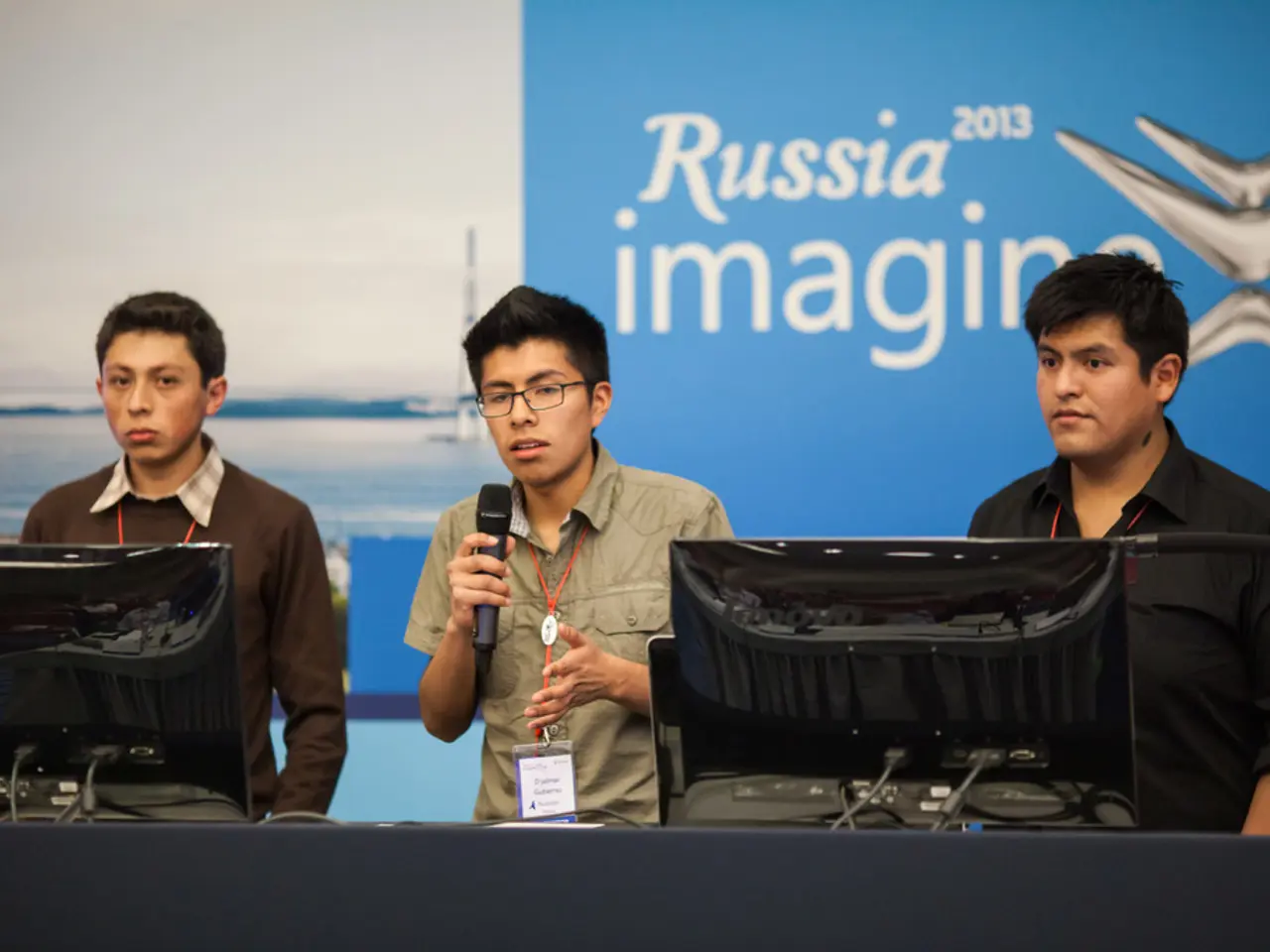U.S. President Trump's Contentious Chip Technology Negotiations with China
The Trump administration has proposed a significant increase in the budget for the Bureau of Industry and Security (BIS), aiming to modernise the organisation and bolster its capabilities. The request for a 77 percent budget hike comes as China continues its aggressive buildout of energy infrastructure and pursues AI advancements.
In a move that could impact this race, the Trump administration paused H20 exports to China in April. The H20 chip, a cut-down chip created specifically for China, is formidable for deploying AI models to users. However, in a surprising turn of events, the Trump administration approved the export of Nvidia's H20 chip to China in August, with the company reportedly having at least 1.3 million H20s destined for Chinese buyers.
The BIS, with only 12 export control officers around the world, including only two for China and one for all of Southeast Asia, faces a challenging task in regulating these exports. Reports suggest that smuggling could become China's primary means of acquiring AI compute in the years ahead, with as much as 40 percent of China's AI training capacity in 2024 gained via smuggling (the median estimate is 10 percent).
Nvidia, the world leader in AI chip design, finds itself at the centre of this global competition. The value of hardware seized in a single busted smuggling operation typically surpasses BIS's entire annual enforcement budget. This underscores the scale of the issue and the need for effective regulation.
Meanwhile, the United States maintains a significant advantage in AI hardware. Nearly 75 percent of the world's AI supercomputing resources are in the US, with over half of hyperscale cloud capacity residing in the country. However, China's state-backed chip foundry, SMIC, can produce only 200,000 of Huawei's top AI chip, the Ascend 910, with relatively low quality.
The advancements in AI are rapid and impressive. By the end of next year, the best AI agents will be capable of reliably performing many tasks that would normally take human experts a full eight-hour workday. The length of tasks AIs can perform autonomously is doubling roughly every four to seven months.
The race for AI supremacy is a complex and evolving narrative. As the technology continues to progress, the strategic implications for both the US and China become increasingly significant. The GAIN AI Act, proposed by Senator Jim Banks, aims to give US buyers priority for purchasing Nvidia's H20 chips, potentially tipping the balance in the US's favour.
However, the challenge of regulating AI exports and combating smuggling remains a critical issue. The future of AI technology will undoubtedly be shaped by the decisions made in this arena.
Read also:
- Industrial robots in China are being installed at a faster rate than in both the United States and the European Union, as the global market for these robots faces a downturn.
- Hyundai N affirms transition to hybrid performance-centric models, initiating with Tucson N
- EAFO Research Uncovers Crucial Elements in Electric Vehicle Adoption within the EU
- Stock markets in India anticipated a moderate opening, influenced by mixed signals from global markets.




